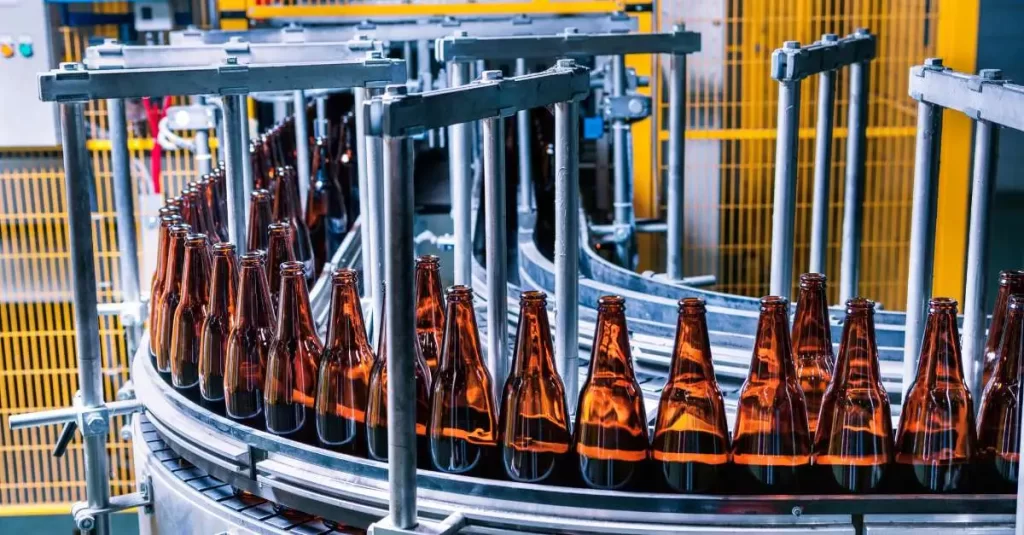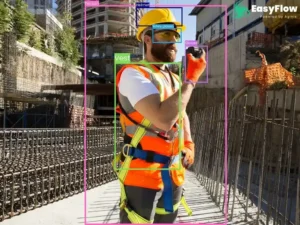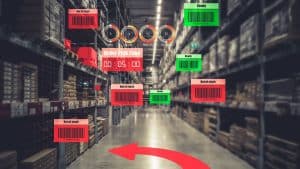Glass bottle inspection plays a crucial role in ensuring the quality of glass bottles in the manufacturing industry.
With the advancements in technology, machine vision and artificial intelligence (AI) have been integrated to improve the inspection process.
In this article, we will explore the concept of glass bottle inspection, the role of AI visual inspection in detecting defects, the challenges in quality control, and how AI visual inspection can streamline the inspection process.
What is glass bottle inspection and why is it important?
Glass bottle inspection refers to the systematic examination of glass bottles to identify any defects or imperfections.
It involves inspecting various aspects of the bottle, such as its shape, color, transparency, and surface condition.
The aim of glass bottle inspection is to ensure that the bottles meet the desired quality standards before they are used for packaging.


The significance of glass bottle inspection in quality control
Glass bottle inspection is of utmost importance in quality control as it helps identify and eliminate defective bottles from the production line.
Defects in glass bottles can compromise the product quality and pose risks to consumers.
By inspecting each bottle, manufacturers can ensure that only bottles that meet the required standards are used for packaging.
The role of machine vision technology in glass bottle inspection
Machine vision technology has revolutionized the glass bottle inspection process.
It involves the use of cameras and sensors to capture images of the bottles and analyze them for defects.
The images are then processed using AI algorithms to detect any abnormalities or imperfections.
Machine vision technology enables fast and accurate inspection, improving the overall efficiency of the quality control process.
How does AI visual inspection detect defects in glass bottles?
AI-based defect detection software like EasyODM use of deep learning algorithms to analyze glass bottles images captured by industrial cameras.
These algorithms are trained to recognize various types of defects, such as cracks, chips, bubbles, and foreign particles.
By comparing the captured images with a database of known defects, AI visual inspection can quickly and accurately identify any abnormalities.
The use cases of AI visual inspection in glass bottle quality control
AI visual inspection has found extensive applications in glass bottle quality control. It is used in the inspection of glass containers used for beverages, pharmaceuticals, and cosmetics.
Industrial cameras can detect even the smallest defects, ensuring that only high-quality bottles are used for packaging sensitive products.
This technology has greatly reduced the reliance on manual inspection, making the process faster and more reliable.
What are the challenges in glass bottle quality control?
Detecting defects in glass bottles can be challenging due to the various factors that can affect their appearance.
For example, the transparency of the glass can make it difficult to identify small cracks or scratches.
Additionally, the shape and design of the bottles can make it tricky to capture images from different angles.
Overcoming these challenges requires advanced inspection algorithms and machine learning techniques.
The role of deep learning algorithms in overcoming inspection challenges
Deep learning algorithms have played a significant role in overcoming the challenges of glass bottle inspection.
These algorithms are trained on large datasets of images to learn patterns and characteristics of different defects.
By continuously improving their accuracy through training, deep learning algorithms can accurately detect even subtle defects that would be difficult to spot with the naked eye.
The importance of real-time inspection solutions for glass bottle quality control
In the fast-paced manufacturing industry, real-time inspection solutions are crucial for maintaining efficient quality control.
Real-time inspection allows manufacturers to detect defects as they occur, enabling immediate corrective actions.
This not only ensures that only high-quality bottles are used for packaging but also minimizes the chances of defective products reaching the market.
How can AI visual inspection improve the glass bottle inspection process?
Integrating machine learning algorithms into the glass bottle inspection process can significantly improve its efficiency and accuracy.
Machine learning algorithms can continuously learn and adapt to new defects, reducing the need for manual adjustments or reprogramming.
This results in a more robust and reliable inspection system that can adapt to changes in bottle designs and production requirements.
The advantages of using a vision system for glass bottle inspection
A vision system, equipped with industrial cameras and machine learning algorithms, offers several advantages for glass bottle inspection.
Firstly, it provides consistent and objective inspection results, eliminating the subjectivity of manual inspection.
Secondly, it can operate at high speeds, allowing for efficient inspection in high-volume production lines.
Lastly, a vision system can collect and analyze inspection data, providing valuable insights for process optimization and quality improvement.
The role of AI-based solutions in streamlining the inspection process
AI-based solutions have revolutionized the glass bottle inspection process by streamlining and automating various aspects.
These solutions can automate the image capture process, analyze images in real-time, and generate detailed inspection reports.
By automating the inspection process, manufacturers can reduce labor costs, increase productivity, and maintain consistent product quality.
Results and Conclusion
The effectiveness of AI visual inspection in glass bottle quality control has been well-established.
It offers fast and accurate defect detection, ensuring that only high-quality bottles are used for packaging.
AI visual inspection has significantly reduced the reliance on manual inspection, making the process more efficient and reliable.
Manufacturers can achieve higher productivity and improved product quality with the implementation of AI visual inspection systems.
The future of glass bottle inspection with AI and machine vision technology
The future of glass bottle inspection looks promising with the continued advancements in AI and machine vision technology.
The integration of AI algorithms and deep learning techniques will further enhance the accuracy and speed of defect detection.
Additionally, the development of more advanced AI cameras and vision systems will enable even more comprehensive inspection capabilities.
As technology continues to evolve, glass bottle inspection will become more efficient, effective, and essential in ensuring product quality.
The impact of AI visual inspection on the glass manufacturing industry
The impact of AI visual inspection on the glass manufacturing industry is significant. It has transformed the quality control process, allowing manufacturers to produce high-quality bottles more efficiently and cost-effectively.
AI visual inspection has also improved customer satisfaction by ensuring that only defect-free bottles reach the market.
The implementation of AI visual inspection systems has become a competitive advantage for glass manufacturers, setting them apart from their competitors and positioning them as industry leaders.
Curious About The Above Solution?
Chat with Vejūnė and explore your possibilities without any commitment.


Vėjūnė Krašinskienė
Chief Operating Officer
Book a no-obligation free consultation with our expert.


